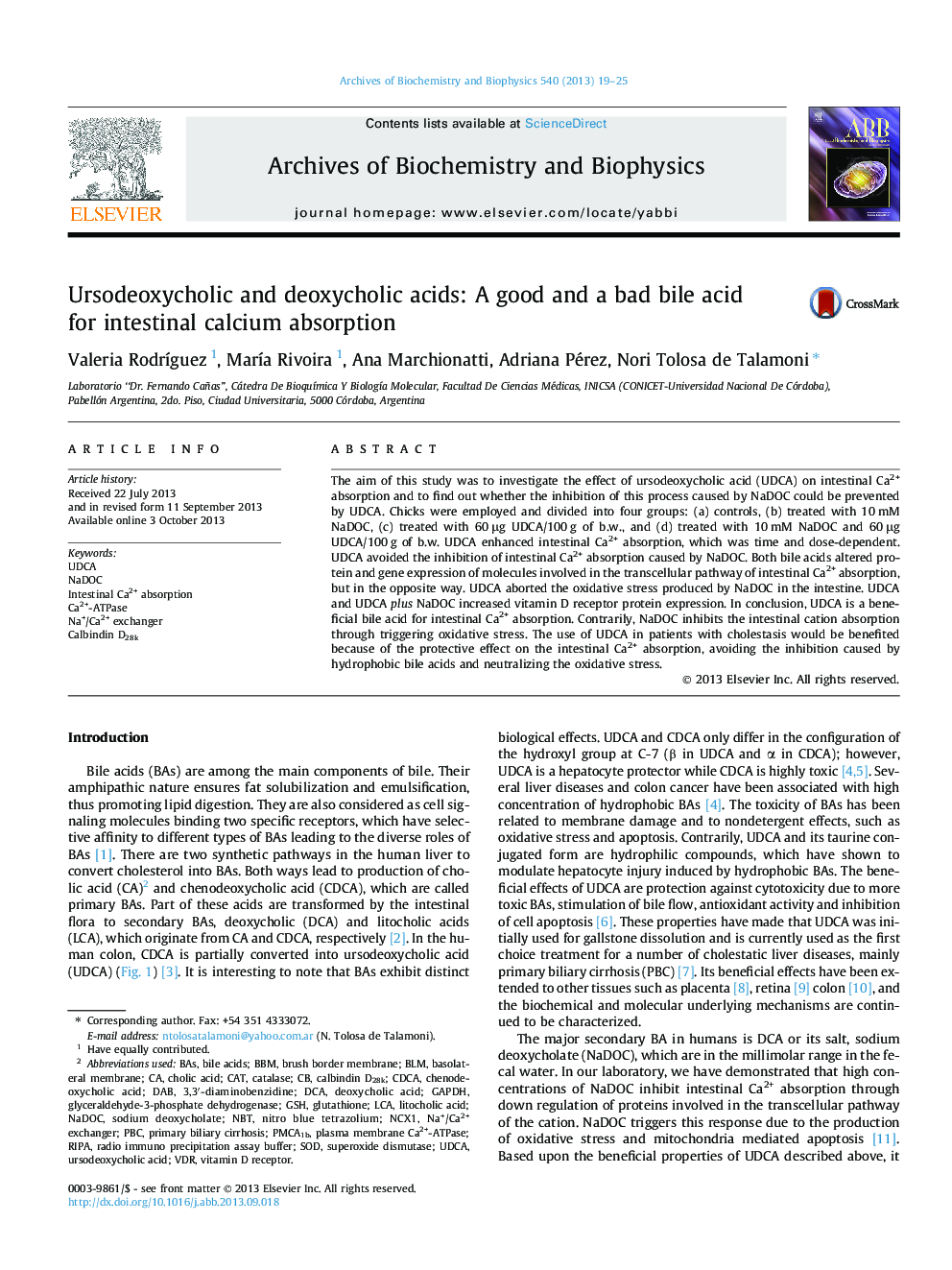| کد مقاله | کد نشریه | سال انتشار | مقاله انگلیسی | نسخه تمام متن |
|---|---|---|---|---|
| 8290406 | 1536359 | 2013 | 7 صفحه PDF | دانلود رایگان |
عنوان انگلیسی مقاله ISI
Ursodeoxycholic and deoxycholic acids: A good and a bad bile acid for intestinal calcium absorption
ترجمه فارسی عنوان
اسیدهای ادرودوکسوشیولوژیک و دگزیکسولیک اسید: اسید صفراوی خوب و بد برای جذب کلسیم روده
دانلود مقاله + سفارش ترجمه
دانلود مقاله ISI انگلیسی
رایگان برای ایرانیان
کلمات کلیدی
موضوعات مرتبط
علوم زیستی و بیوفناوری
بیوشیمی، ژنتیک و زیست شناسی مولکولی
زیست شیمی
چکیده انگلیسی
The aim of this study was to investigate the effect of ursodeoxycholic acid (UDCA) on intestinal Ca2+ absorption and to find out whether the inhibition of this process caused by NaDOC could be prevented by UDCA. Chicks were employed and divided into four groups: (a) controls, (b) treated with 10 mM NaDOC, (c) treated with 60 μg UDCA/100 g of b.w., and (d) treated with 10 mM NaDOC and 60 μg UDCA/100 g of b.w. UDCA enhanced intestinal Ca2+ absorption, which was time and dose-dependent. UDCA avoided the inhibition of intestinal Ca2+ absorption caused by NaDOC. Both bile acids altered protein and gene expression of molecules involved in the transcellular pathway of intestinal Ca2+ absorption, but in the opposite way. UDCA aborted the oxidative stress produced by NaDOC in the intestine. UDCA and UDCA plus NaDOC increased vitamin D receptor protein expression. In conclusion, UDCA is a beneficial bile acid for intestinal Ca2+ absorption. Contrarily, NaDOC inhibits the intestinal cation absorption through triggering oxidative stress. The use of UDCA in patients with cholestasis would be benefited because of the protective effect on the intestinal Ca2+ absorption, avoiding the inhibition caused by hydrophobic bile acids and neutralizing the oxidative stress.
ناشر
Database: Elsevier - ScienceDirect (ساینس دایرکت)
Journal: Archives of Biochemistry and Biophysics - Volume 540, Issues 1â2, December 2013, Pages 19-25
Journal: Archives of Biochemistry and Biophysics - Volume 540, Issues 1â2, December 2013, Pages 19-25
نویسندگان
Valeria RodrÃguez, MarÃa Rivoira, Ana Marchionatti, Adriana Pérez, Nori Tolosa de Talamoni,
